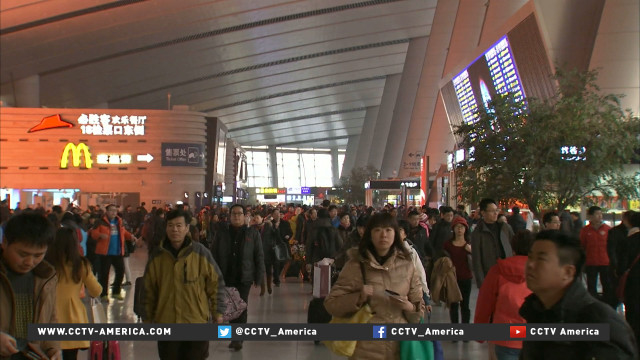Millions of Chinese people begin the rush home to reunite with their families in preparation for Lunar New Year celebrations in China New which will last for the two weeks between February 19 and March 5. During the 40-day spring festival travel period around 2.8 billion trips are expected to be made. CCTV’s correspondent Zhao Yunjie followed one couple on their journey home and witnessed how this long-held family tradition has shaped the country into what it is today.

“I miss home more when the festival gets closer,” traveler Miao Guifang said.
Miao Guifang is a Sichuan native and a subway construction worker in Beijing who is no stranger to China’s annual spring festival migration.
The holiday is the only time Miao can see her son back in her hometown.
Sometimes, the separation is very painful. “I would sit sometimes with my son’s picture in hand, sometimes I cried. I would say to myself, I’m giving him a better life,” Miao said.
This year, Miao’s company helped migrant workers like her buy train tickets together. Previously, they have to wait in a long line for days at the railway stations for tickets unsure if they would get one.
It is a 34-hour journey, but not a hard one for Miao and her husband who’re surrounded by people on the ride who share their dialect and their experiences. Chen Shuming also works in Beijing as a construction worker.
“I called my children and asked them to come home. They are migrant workers too. At first they said no. They said they didn’t have enough money. I said please come home with or without money. Mom and Dad miss you. It’s Spring Festival,” Spring festival traveler Chen Shuming said.
Also on the train are many children who were born and raised in Beijing. The trip to their parent’s hometown is more like an expedition for the kids. Having children by their side in the big city is becoming more popular among young migrant workers.
 CGTN America
CGTN America
